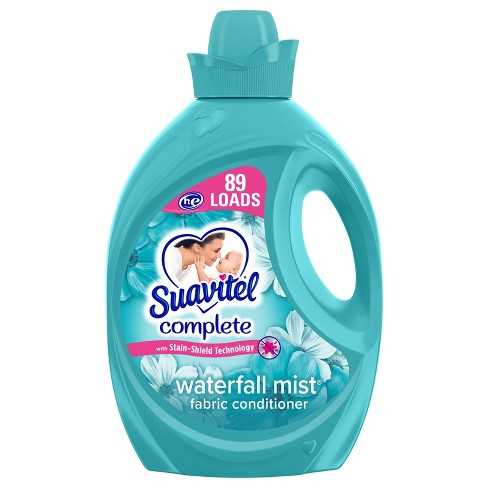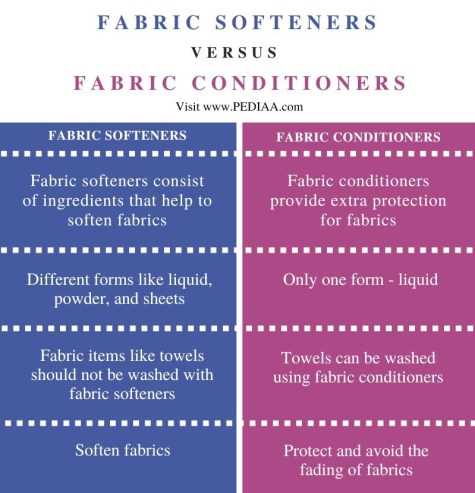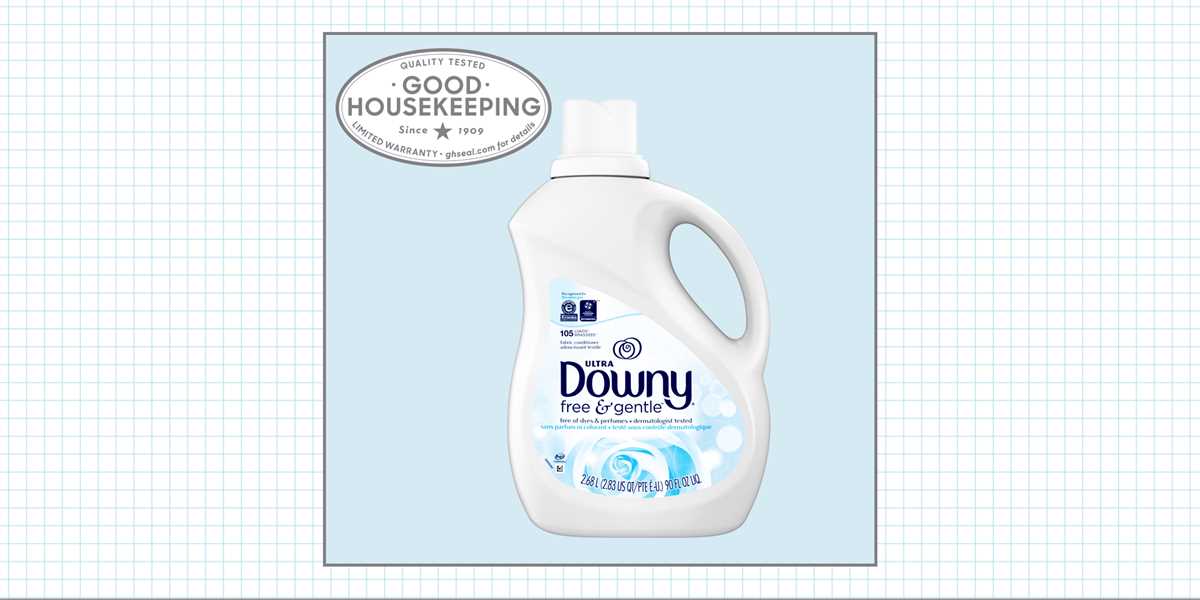


When it comes to achieving soft and comfortable clothes, many people turn to fabric softener or conditioner. While they both aim to make your garments feel luxurious and pleasant to wear, fabric softeners and conditioners are not the same thing. Understanding the key differences between these two products can help you make an informed decision about which one is right for you.
Fabric softeners are specifically designed to be used in the washing machine during the rinse cycle. They are typically available in liquid or dryer sheet form and work by coating the fabrics with a thin layer of chemicals. This layer reduces static electricity, makes the fibers feel smoother, and helps to prevent wrinkles. Fabric softeners often have a pleasant scent that lingers on the clothes, leaving them smelling fresh for days.
Conditioners, on the other hand, are intended for hair care but can also be used to soften fabrics. They are usually in liquid form and are applied directly to the clothes during the wash cycle. Conditioners work by moisturizing the fibers and making them more supple. They can also help to restore the natural oils in the fabric, especially useful for garments made from natural fibers like cotton or silk. Conditioners can leave a subtle fragrance on the clothes, but it tends to be less intense than that of fabric softeners.
So, what’s the main difference between fabric softeners and conditioners? Fabric softeners mainly focus on reducing static and preventing wrinkles, while conditioners prioritize softening the fibers and restoring the natural oils in the fabric. Ultimately, the choice between the two depends on your personal preferences and the specific needs of your garments. If you want your clothes to smell fresh and have reduced static, fabric softeners may be the way to go. On the other hand, if you’re looking for soft and supple fabrics, especially for natural fibers, conditioners might be the better option.
What is Fabric Softener?
- Fabric softener is a type of laundry product that is designed to make clothes feel softer, reduce static cling, and add a fresh scent. It is typically used during the rinse cycle of the washing machine or added directly to the wash water.
- Fabric softeners come in liquid form, as well as dryer sheets and dryer balls. Liquid fabric softeners are added to the washing machine, while dryer sheets and balls are used in the dryer.
- Fabric softeners work by coating the fabric fibers with a thin layer of chemicals that help to lubricate the fibers, making them feel softer to the touch. This is particularly useful for fabrics that can feel rough or stiff, such as towels and certain types of cotton.
- In addition to softening the fabric, fabric softeners also help to reduce static cling. Static cling occurs when clothes rub against each other during the wash or drying process, causing them to stick together or to other surfaces. The chemicals in fabric softeners help to neutralize the static charge, preventing clothes from clinging together.
- Another benefit of fabric softeners is that they add a pleasant scent to the clothes. Many fabric softeners come in a variety of fragrances, allowing you to choose the one that you prefer. The scent can help to mask any unpleasant odors that may be present on the clothes, leaving them smelling fresh and clean.
Overall, fabric softeners are a popular choice for many people who want to make their clothes feel softer, reduce static cling, and add a fresh scent. They can be easily incorporated into the laundry routine and can help to keep clothes looking and feeling their best.
What is Conditioner?

Conditioner is a hair care product that is used after shampooing to improve the overall health, appearance, and manageability of the hair. It is typically applied to the hair and left on for a short period of time before being rinsed out. Conditioner is designed to provide additional moisture, nourishment, and protection to the hair, which can become dry, damaged, or frizzy due to factors such as heat styling, chemical treatments, and environmental factors.
Conditioner works by coating the hair strands with a thin layer of moisturizing and nourishing ingredients. This helps to smooth the hair cuticles, reduce frizz, and enhance shine. The moisturizing properties of conditioner also help to prevent moisture loss, making the hair less prone to breakage and split ends.
There are different types of conditioners available, each catering to specific hair types and concerns. Some common types include:
- Daily Conditioner: This type of conditioner is lightweight and can be used on a daily basis to provide basic moisture and maintenance to the hair.
- Deep Conditioning Treatment: This type of conditioner is more intensive and is designed to provide deep hydration and repair to dry, damaged, or chemically treated hair. It is typically left on for a longer period of time for maximum effectiveness.
- Leave-In Conditioner: This type of conditioner is applied to the hair and left on without rinsing. It provides ongoing moisture, detangling, and protection throughout the day.
Conditioner is usually applied after shampooing, as shampooing can strip the hair of its natural oils and leave it feeling dry or brittle. It is important to choose a conditioner that is suitable for your hair type and concerns in order to achieve the best results. Additionally, it is recommended to apply the conditioner evenly to the lengths and ends of the hair, avoiding the scalp to prevent excessive oiliness.
In summary, conditioner is a hair care product that helps to improve the overall health and appearance of the hair by providing moisture, nourishment, and protection. It is an important step in a hair care routine, especially for those with dry, damaged, or frizzy hair.
How They Work
Fabric Softener:
- Fabric softeners are products used in laundering to make clothes softer and reduce static cling.
- They are typically added to the rinse cycle or used in dryer sheets.
- Fabric softeners work by coating the fabric fibers with a thin layer of chemicals that make them feel softer.
- These chemicals help to reduce friction between the fabric fibers, which in turn reduces static electricity.
- The softeners also help to repel moisture, which can make clothes feel smoother to the touch.
- In addition to making clothes softer, fabric softeners can also add a pleasant scent to the laundry.
Hair Conditioner:
- Hair conditioners are products used in hair care to make the hair softer, smoother, and more manageable.
- They are typically applied to wet hair after shampooing and rinsed out after a few minutes.
- Hair conditioners work by coating the hair strands with a layer of moisturizing ingredients.
- These ingredients help to replenish the hair’s natural oils and seal in moisture, making the hair feel softer and smoother.
- Conditioners can also help to detangle the hair and reduce frizz, making it easier to comb and style.
- Some conditioners also contain ingredients that can repair damaged hair and protect it from environmental damage.
Benefits of Fabric Softener

- Softens fabric: One of the main benefits of fabric softener is that it helps to soften and smoothen the fabric. This makes clothes feel more comfortable and luxurious against the skin.
- Reduces static: Fabric softeners are designed to reduce static electricity in clothes. This helps to prevent clothes from clinging to the body and eliminates annoying static shocks.
- Improves wrinkle resistance: Fabric softeners can improve the wrinkle resistance of clothes, making them easier to iron and reducing the appearance of wrinkles after washing and drying.
- Enhances fragrance: Many fabric softeners have a pleasant fragrance that can linger on clothes after washing. This helps to keep clothes smelling fresh and clean for a longer period of time.
- Reduces drying time: Fabric softeners can also help to reduce drying time. The softening agents in fabric softeners can make clothes more absorbent, allowing them to dry more quickly.
- Protects fabric: Fabric softeners form a thin layer on the fabric, which acts as a protective barrier against damage caused by friction, stretching, and washing. This helps to extend the life of clothes and keeps them looking newer for longer.
Benefits of Conditioner

Conditioner is a hair care product that provides numerous benefits for the hair. Whether you have dry, damaged, or frizzy hair, using conditioner regularly can help improve the overall health and appearance of your hair.
- Hydration: One of the main benefits of using conditioner is that it helps to hydrate the hair. Conditioners are formulated with moisturizing agents that help to restore moisture to dry and dehydrated hair, leaving it soft and smooth.
- Detangling: Conditioner also helps in detangling the hair, making it easier to comb or brush. It coats the hair shaft and smoothens the hair cuticles, reducing friction, and preventing tangles and knots.
- Improved Manageability: Using conditioner regularly can improve the manageability of your hair. It makes the hair more manageable, reducing frizz, and making it easier to style.
- Protection: Conditioner helps protect the hair from damage caused by environmental factors, such as pollution, UV rays, and heat styling tools. It forms a protective barrier around the hair shaft, preventing damage and breakage.
- Enhanced Shine: Conditioners can also add shine and luster to the hair. They smooth the hair cuticles, reflecting light and giving the hair a healthy and glossy appearance.
In addition to these benefits, conditioners also come in different formulas targeting specific hair concerns, such as volumizing, repairing, or color protection, allowing you to choose one that suits your individual needs.
FAQ
What is the difference between fabric softener and conditioner?
Fabric softener is a product used during laundry to make clothes softer and reduce static cling. Conditioner, on the other hand, is typically used for hair and is used to make it softer, smoother, and more manageable.
Can I use fabric softener on my hair?
No, fabric softener is not safe to use on hair. It is formulated specifically for use on fabric and can be harmful if applied to the scalp or hair. Instead, you should use a conditioner that is specifically designed for hair.
Is it possible to use conditioner as a fabric softener?
While conditioner may have some similar effects to fabric softener, it is not recommended to use it as a fabric softener. Conditioner is designed for hair and may not work as effectively on fabric. It is best to use a product that is specifically formulated for use as a fabric softener.
Which is better, fabric softener or conditioner?
The choice between fabric softener and conditioner depends on the specific use. Fabric softener is best for making clothes softer and reducing static cling. Conditioner is best for making hair softer, smoother, and more manageable. Ultimately, it is up to personal preference and the specific needs of the user.












